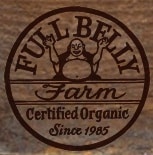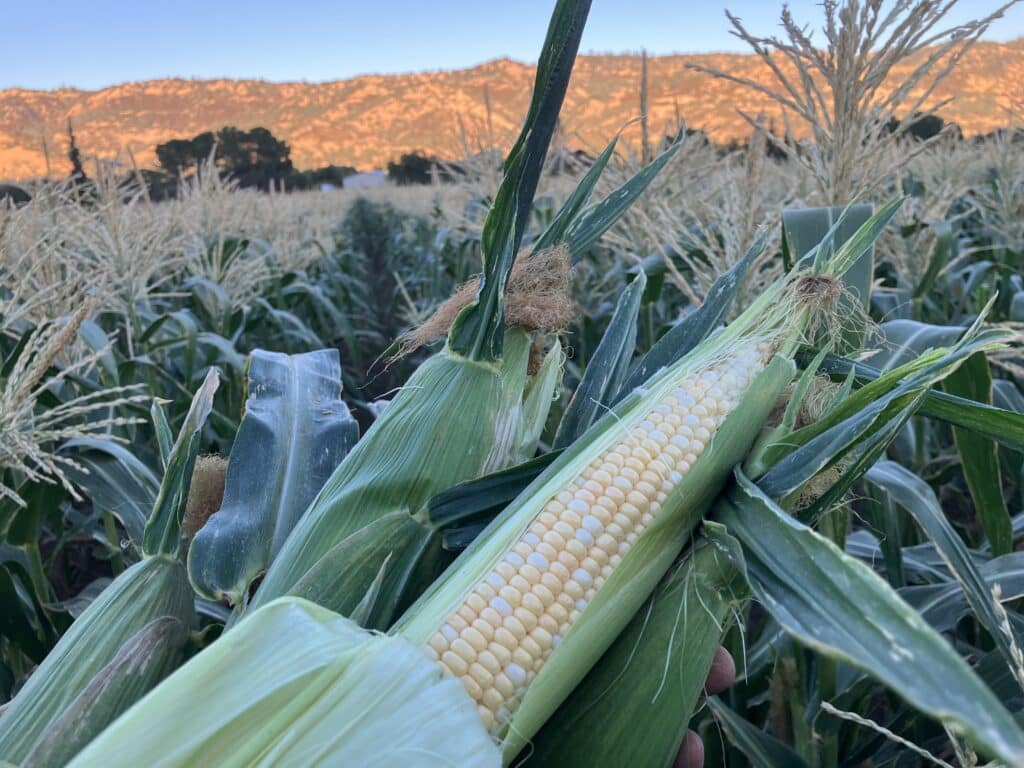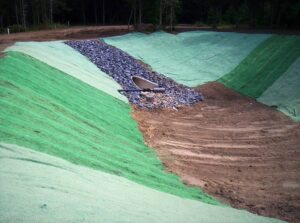
full belly farm logo.jpg

I wanted to share a letter we got a week ago from a CSA member:
On Wednesday, we picked up our CSA box. As my husband was prepping the corn, he found a little corn worm. Our kids (5 and almost 3) love caterpillar friends, so as we have done many times, we put the little guy in a mason jar with some food and placed him in our kitchen for the kids to enjoy. He was promptly named Caterpilly. We also got to talk about how other animals and insects we share our world with enjoy the same food we do and how great that is. We love our CSA box, and I wanted to share this story because it is so much more than food that comes in those green boxes.
Keep doing what you are doing.
Thanks, Meghan
I really appreciated this note. In an ideal world, we wouldn’t have corn ear worms munching away at the corn, or aphids, or wireworm damage on our root vegetables. Unlike Caterpilly, not all worms are small, and like the main character in the well-known Eric Carle book, many caterpillars can be “Very Hungry.” But it’s impossible to avoid them, and as Meghan said in a follow up email, “I’m not sure I would want to eat food other animals/insects didn’t want to eat!” All of us here at Full Belly would agree!
We’re finally done with corn for the year, but it was a great run and despite some unwelcome worms, we heard from a lot of you that you enjoyed the early summer corn and the more recent ears. All good things come to an end and we’re excited for the new crops ahead and the many fields of cover crops* we’ll grow over winter. Cover crops don’t taste as good as corn (at least to us humans), but their work to feed the soil will eventually turn into next year’s corn, or something equally delicious.
Elaine Swiedler, CSA Manager
*Is this your first time hearing about cover crops? Or do you need a refresher? Check out this Beet article!
Source link
2024-11-11 15:31:27
Karl Hoffman is a distinguished agriculturalist with over four decades of experience in sustainable farming practices. He holds a Ph.D. in Agronomy from Cornell University and has made significant contributions as a professor at Iowa State University. Hoffman’s groundbreaking research on integrated pest management and soil health has revolutionized modern agriculture. As a respected farm journalist, his column “Field Notes with Karl Hoffman” and his blog “The Modern Farmer” provide insightful, practical advice to a global audience. Hoffman’s work with the USDA and the United Nations FAO has enhanced food security worldwide. His awards include the USDA’s Distinguished Service Award and the World Food Prize, reflecting his profound impact on agriculture and sustainability.


